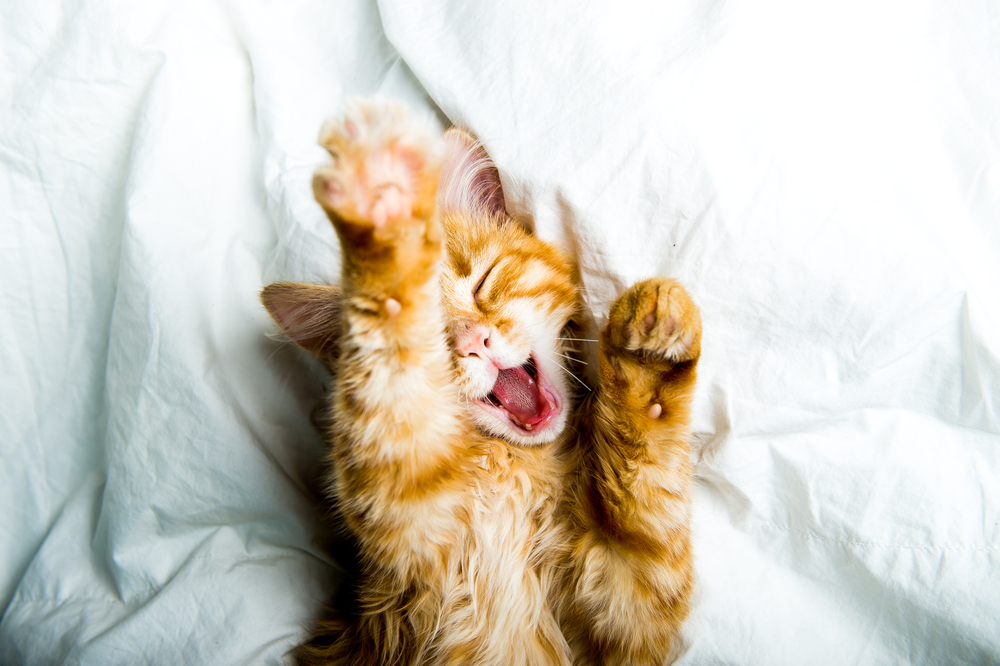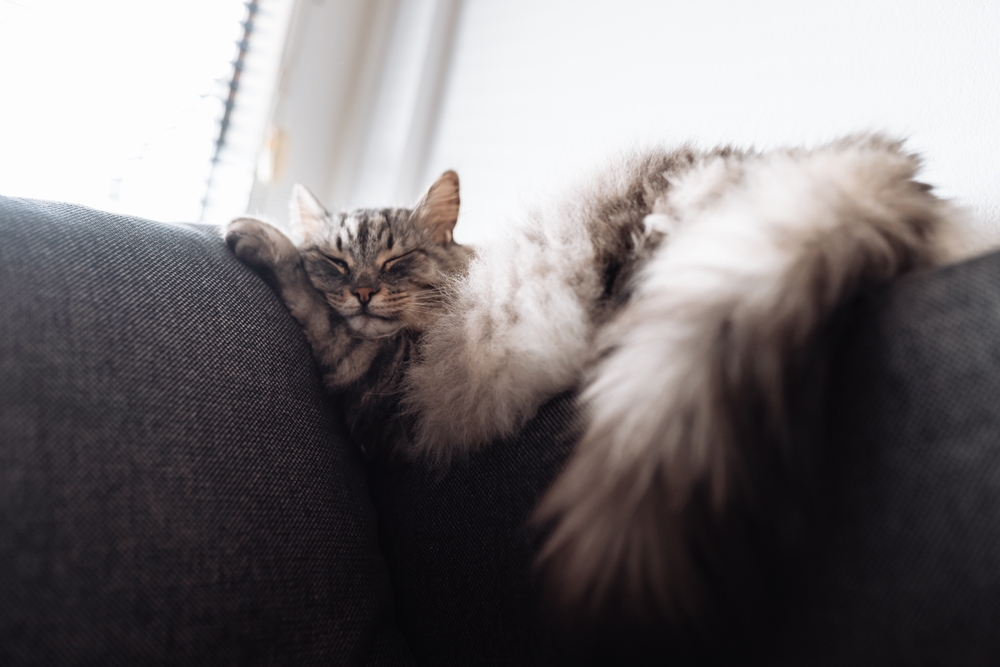Cats are known for their love of sleep, often spending up to 16 hours—or more—dozing each day. But there’s more to these cat naps than meets the eye. Let’s explore the real reasons why cats indulge in those marathon snoozes.
They’re Storing Energy for Their Inner Predator

Cats are natural hunters, even if your fluffy friend is more familiar with the couch than the wild. In the wild, big cats like lions and tigers conserve energy for intense, short bursts of activity needed to catch prey. House cats have inherited this instinct, so they rest so much—storing energy to pounce, play, or just dart across the living room when you least expect it.
They Sleep to Help Process Their Day
Cats benefit from deep REM sleep to process information and experiences like humans. While they may look like they’re simply lounging, cats are cycling through stages of sleep that help them “replay” the day’s events and process smells, sounds, and interactions. This processing time is essential, as it helps them stay sharp and in tune with their surroundings.
They’re Crepuscular by Nature
Cats are naturally crepuscular, meaning they’re most active during dawn and dusk. This aligns with the activity patterns of their prey in the wild. So, they conserve energy during the day, napping on and off to recharge for these peak hunting times. If your cat is suddenly energized at twilight, it’s their natural rhythm kicking in, perfectly timed with how nature intended.
They Have Unique Sleep Cycles

Unlike humans, who have long sleep cycles, cats sleep in short bursts. They alternate between dozing lightly and dipping into a deep sleep. This unique pattern allows them to rest while remaining aware of their surroundings. So, thanks to this light-sleeping habit, if your cat’s ears twitch at the faintest noise during nap time, they’re always ready to spring to action.
It’s a Genetic Trait Passed Down from Big Cats
Big and small, cats share sleep patterns passed down over generations. Wild cats need to conserve energy for hunting and avoiding predators, and they often find themselves waiting for the right moment to act. Your domestic cat may have never faced a predator, but they still carry this evolutionary trait, causing them to sleep as a means of survival, even from the comfort of your bed.
They Grow and Heal with Sleep
Cats, especially kittens, need extra sleep to grow. Growth hormones are released during sleep, allowing their bones, muscles, and immune systems to develop. Adult cats, too, rely on sleep for cell repair and overall well-being. So, those marathon naps play a role in their health, helping them stay resilient and keeping their bodies in top shape, ready for whatever the day brings.
It’s a Sign of Comfort and Security
In the wild, animals only sleep when they feel safe, and your cat’s tendency to fall asleep anywhere is a huge compliment. It means they feel comfortable and secure in their environment. A cat that falls asleep easily and often is a cat that feels safe, loved, and well cared for, knowing they have a warm, cozy place to let down their guard.
They Have a Super Efficient Metabolism
While cats seem lazy, their metabolism is incredibly efficient. They get more rest to conserve energy for key moments of activity. Compared to other animals, cats have a higher protein requirement, metabolized and used effectively to support short bursts of high-energy movement, making rest periods essential to their overall health.

